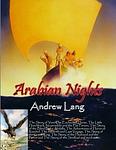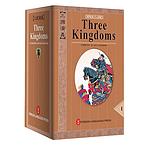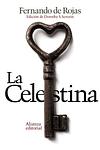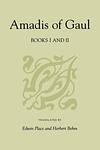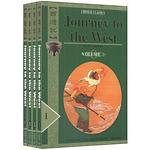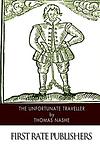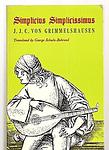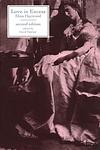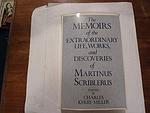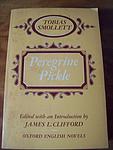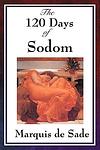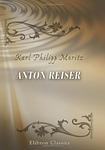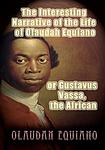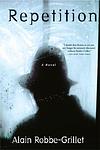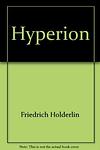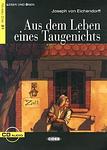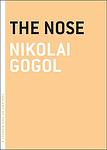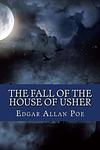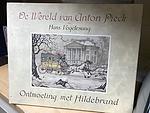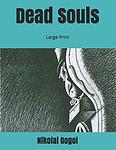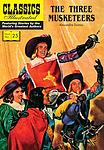1001 Books You Must Read Before You Die
This is one of the 284 lists we use to generate our main The Greatest Books list.
-
One Thousand and One Nights by Unknown
This is a collection of Middle Eastern folk tales compiled during the Islamic Golden Age. The stories are told by a young woman, who must weave a new tale each night for her husband, a king, to delay her execution. The tales are filled with magic, adventure, love, and betrayal, and include well-known stories such as "Aladdin's Wonderful Lamp", "Ali Baba and the Forty Thieves", and "The Seven Voyages of Sinbad the Sailor".
-
The Tale of the Bamboo Cutter by Unknown
"The Tale of the Bamboo Cutter" is a classic piece of Japanese literature that follows the story of a bamboo cutter who finds a tiny girl inside a glowing bamboo stalk. The girl grows into a beautiful and desirable woman, attracting numerous suitors including the emperor. However, she reveals that she is not from Earth, but from the moon and is eventually taken back, leaving the bamboo cutter and her suitors heartbroken. The tale is a poignant exploration of love, loss, and the transient nature of beauty.
-
The Tale of Genji by Murasaki Shikibu
"The Tale of Genji" is a classic work of Japanese literature from the 11th century, often considered the world's first novel. The story revolves around the life of Genji, the son of an emperor, exploring his political rise, romantic relationships, and the complex court life of the Heian era. The novel is celebrated for its detailed characterization and its analysis of the different forms of love.
-
Romance of the Three Kingdoms by Guanzhong Luo
"Romance of the Three Kingdoms" is a historical novel set in the turbulent years towards the end of the Han dynasty and the Three Kingdoms period in Chinese history, starting in 169 AD and ending with the reunification of the land in 280. The story, part historical, part legend, and part mythical, romanticizes and dramatizes the lives of feudal lords and their retainers, who tried to replace the dwindling Han dynasty or restore it. The novel deals with the plots, personal and military battles, intrigues, and struggles of these states to achieve dominance for almost 100 years.
-
The Water Margin: Outlaws of the Marsh by Shi Naian
"The Water Margin: Outlaws of the Marsh" is a classic Chinese novel set during the Song dynasty, revolving around 108 outlaws who gather at Mount Liang to form a sizable army. The narrative explores themes of rebellion, loyalty, and justice, as these bandits challenge the corrupt and oppressive government. Despite their status as outlaws, they follow a strict code of honor and righteousness, often assisting the poor and the weak. The book is a blend of history, folklore, and mythology, offering a vivid portrayal of the political and social dynamics of the era.
-
The Golden Ass (Metamorphoses): Or Metamorphoses by Apuleius
This classic novel follows the protagonist, a young man who is transformed into a donkey after meddling with magic he doesn't understand. His journey takes him through a series of adventures, where he encounters a variety of characters from different walks of life and gets into all sorts of trouble. Through his experiences, he gains a deeper understanding of the human condition and the world around him. The narrative also includes several mythological tales and allegories, including the famous story of Cupid and Psyche. Eventually, the protagonist regains his human form through divine intervention, having learned valuable lessons about life, love, and humanity.
-
Tirant Lo Blanc by Unknown
"Tirant Lo Blanc" is a medieval chivalric romance that follows the adventures of the titular knight as he battles Moors in North Africa, serves the Byzantine emperor, and falls in love with the emperor's daughter. The book is known for its realistic depiction of warfare and courtly love, and for its satirical commentary on the chivalric ideals of the time. The protagonist is portrayed as a more human and flawed character than the typical knights of other chivalric romances, making the story more relatable and engaging.
-
La Celestina by Fernando de Rojas
The book is a tragic comedy set in 15th-century Spain, revolving around the passionate and ill-fated love affair between Calisto and Melibea. After Calisto falls for Melibea but is rejected, he enlists the help of Celestina, an old and cunning procuress, to win Melibea's heart. Celestina's manipulations initially seem successful, but her greed and the involvement of various other servants and hangers-on lead to a series of dramatic and violent events. The story ultimately unfolds into a cautionary tale of lust, deception, and the destructive consequences of obsessive love, ending in tragedy for most of the main characters.
-
Amadis of Gaul by Unknown
"Amadis of Gaul" is a medieval romance that tells the story of the titular character, a knight-errant, who embarks on a series of adventures throughout the mythical kingdoms of Western Europe. Throughout his journey, Amadis encounters a variety of challenges, including enchantments, monsters, and rival knights, all while remaining steadfast in his love for Princess Oriana. The tale is known for its elaborate descriptions of chivalry, courtly love, and honor, and is considered a classic example of the chivalric romance genre.
-
The Life of Lazarillo de Tormes by Unknown
"The Life of Lazarillo de Tormes" is a novel that follows the life of Lazarillo, a boy of humble origins from Salamanca, Spain, who becomes an apprentice to a series of masters, each representing different aspects of society. The narrative is a critique of the hypocrisy and corruption of the Spanish society of the time, especially the clergy. Lazarillo's experiences and the lessons he learns, often through deception and trickery, serve as a social and moral commentary on the world around him. The novel is considered one of the pioneers of the picaresque genre.
-
Gargantua and Pantagruel by Francois Rabelais
"Gargantua and Pantagruel" is a satirical and humorous tale of two giants, Gargantua and his son Pantagruel. The narrative is filled with bawdy humor, wordplay, and grotesque and exaggerated characters, reflecting the realities of 16th-century France. The book is also known for its profound insights on education, religion, and politics, often criticizing the corruption and hypocrisy of the powerful. The novel is a rich blend of fantasy, comedy, and philosophical discourse, making it a classic of Renaissance literature.
-
The Lusiad by Luís Vaz Camões
"The Lusiad" is an epic poem that chronicles the historic voyage of Vasco da Gama, who discovered a sea route from Portugal to India in 1497-1498. The narrative is filled with both historical events and fantastical elements, including sea monsters and divine intervention. The story celebrates Portugal's maritime exploration and its heroes, while also reflecting on the human condition and the nature of life, destiny, and the cosmos.
-
Journey to the West by Wu Cheng'en
"Journey to the West" is a classic Chinese novel that follows the adventures of a Buddhist monk and his three disciples, a monkey, a pig, and a river monster, as they travel from China to India in search of sacred Buddhist scriptures. Along the way, they face a series of challenges and obstacles, including battling demons and overcoming their own personal weaknesses. This epic tale is a blend of mythology, folklore, and fantasy, and is also a commentary on the practice and principles of Buddhism.
-
The Unfortunate Traveller by Thomas Nashe
"The Unfortunate Traveller" is a picaresque novel that follows the adventures and misadventures of a young man named Jack Wilton, who goes through various escapades across Europe during the reign of Henry VIII. As a page to the Earl of Surrey, Jack encounters a variety of characters and experiences, including wars, imprisonment, and love affairs. The novel is notable for its vivid depiction of the social and political conditions of the time, as well as its pioneering use of the English language.
-
Thomas of Reading, Or, The Sixe Worthie Yeomen of the West by Thomas Deloney
"Thomas of Reading, Or, The Sixe Worthie Yeomen of the West" is a historical novel set in the time of King Henry I. The story revolves around six wealthy clothiers who regularly travel to Reading and other towns to sell their goods. The tale combines elements of tragedy and comedy, with the central plot involving a conspiracy by the local millers and fullers to cheat the clothiers. The narrative also offers a glimpse into the socio-economic conditions of the time, highlighting the importance of the cloth industry in England's economy.
-
Don Quixote by Miguel de Cervantes
This classic novel follows the adventures of a man who, driven mad by reading too many chivalric romances, decides to become a knight-errant and roam the world righting wrongs under the name Don Quixote. Accompanied by his loyal squire, Sancho Panza, he battles windmills he believes to be giants and champions the virtuous lady Dulcinea, who is in reality a simple peasant girl. The book is a richly layered critique of the popular literature of Cervantes' time and a profound exploration of reality and illusion, madness and sanity.
-
The Travels of Persiles and Sigismunda by Miguel de Cervantes
"The Travels of Persiles and Sigismunda" is a complex, multi-layered narrative that follows the journey of two noble lovers, Persiles and Sigismunda, who disguise themselves as brother and sister to escape from their homeland and travel through numerous countries. Throughout their journey, they encounter a wide array of characters and experience numerous adventures, all while maintaining their secret identities. The book is known for its exploration of love, virtue, and the human condition, with a blend of realism and fantasy.
-
The True History of the Conquest of New Spain by Bernal Díaz del Castillo
This book provides a first-hand account of the conquest of Mexico by the Spanish during the 16th century. It offers a detailed narrative of the events, battles, and interactions with native tribes, including the Aztecs. The author, a soldier in the Spanish army, provides a unique perspective on Hernán Cortés and his tactics, the politics of the time, and the cultural and religious practices of the indigenous people. The book also highlights the hardships, challenges, and ethical dilemmas faced by the conquistadors.
-
Simplicius Simplicissimus by Hans Jakob Christoffel von Grimmelshausen
"Simplicius Simplicissimus" is a satirical novel set during the Thirty Years War in Germany. It follows the life of the protagonist, a naive and simple peasant boy, who is forced to become a soldier. As he journeys through the war-torn land, he encounters various adventures and misadventures, and through these experiences, he gradually loses his innocence and gains a deeper understanding of the world and human nature. The book offers a poignant critique of war and society, highlighting the absurdity and brutality of the human condition.
-
The Princess of Cleves by Madame de La Fayette
Set in the royal court of Henry II of France, the novel follows the life of a beautiful young woman, newly presented at court, who attracts the attention of many suitors, including the King's son. However, she is married off to a man she does not love, the Prince of Cleves. Despite her loyalty to her husband, she falls in love with the Duke of Nemours. The novel explores themes of duty, honor, and the conflict between passion and reason as the protagonist struggles with her feelings and the moral implications of her love for the Duke.
-
Oroonoko by Aphra Behn
The novel tells the story of an African prince, Oroonoko, who is tricked into slavery by European traders. Despite his noble bearing and personal courage, he is shipped to a plantation in Surinam where he leads a slave revolt. The book explores themes of colonialism, slavery, and the juxtaposition of civilization and barbarity. The protagonist's tragic end is a powerful indictment of European barbarity and hypocrisy.
-
Robinson Crusoe by Daniel Defoe
The book is a classic adventure novel about a man who spends 28 years on a remote tropical island near Trinidad, encountering cannibals, captives, and mutineers before being rescued. The story is noted for its realistic portrayal of the protagonist's physical and psychological development and for its detailed depiction of his attempts to create a life for himself in the wilderness. The novel has been interpreted as an allegory for the development of civilization, as well as a critique of European colonialism.
-
Love in Excess; or, The Fatal Enquiry by Eliza Haywood
"Love in Excess; or, The Fatal Enquiry" is a tale of passion and romance that follows the complicated love affairs of a handsome and charming count. The count becomes entangled in a web of desire with three different women, leading to a series of dramatic events including seductions, betrayals, and even murder. The novel explores themes of female sexuality, desire, and the consequences of unrestricted passion, and it is considered a significant work in the development of the novel of manners.
-
Moll Flanders by Daniel Defoe
"Moll Flanders" is a novel about the life of a woman in the 17th century who is born in Newgate Prison to a mother who is a convict. Moll is raised by gypsies until she is old enough to take care of herself. She becomes a servant, marries multiple times, becomes a thief, and eventually ends up in Newgate Prison herself. Despite her tumultuous life, she maintains her spirit and cunning, using both to navigate the harsh realities of her world. The book is a commentary on the social and economic realities of the time, particularly for women.
-
Gulliver's Travels by Jonathan Swift
This classic satire follows the travels of a surgeon and sea captain who embarks on a series of extraordinary voyages. The protagonist first finds himself shipwrecked on an island inhabited by tiny people, later discovers a land of giants, then encounters a society of intelligent horses, and finally lands on a floating island of scientists. Through these bizarre adventures, the novel explores themes of human nature, morality, and society, offering a scathing critique of European culture and the human condition.
-
A Modest Proposal and Other Satirical Works by Jonathan Swift
This compilation of satirical works by a renowned author includes the infamous "A Modest Proposal," in which the author suggests that the solution to poverty in Ireland is for the poor to sell their children as food to the wealthy. The book also includes other satirical essays that critique societal and political issues of the time, employing irony and sarcasm to expose and criticize human vices and follies. The author's biting wit and masterful use of satire offer a scathing commentary on the social and political landscape of his era.
-
Joseph Andrews by Henry Fielding
This novel follows the journey of a young man named Joseph Andrews who travels across England to reunite with his true love, Fanny Goodwill. Along the way, he faces various obstacles and meets a variety of characters, including his mentor Parson Adams. The narrative satirizes various aspects of 18th-century society, including class distinctions, sexual morality, and the hypocrisy of the church. The story is both comedic and dramatic, combining elements of adventure, romance, and social commentary.
-
Memoirs of Martinus Scriblerus by Scriblerus Club
The book is a satirical biography that follows the life of Martinus Scriblerus, a fictional scholar who is absurdly learned in everything except common sense. The narrative humorously critiques the pedantry and flawed logic of various scientific and philosophical disciplines of the time. The character's misadventures and misunderstandings serve to highlight the absurdities of blind adherence to scholarly theories and methodologies, while also providing a humorous commentary on contemporary society and intellectual pretensions.
-
Pamela by Samuel Richardson
"Pamela" is a novel that tells the story of a 15-year-old maidservant named Pamela whose employer, Mr. B, makes unwanted advances towards her after the death of his mother. Pamela is determined to protect her virtue and repeatedly rejects his advances. This leads to a series of events, including her attempted escape, kidnapping and imprisonment. Ultimately, impressed by her virtue and integrity, Mr. B reforms and proposes marriage to her, elevating her to a higher social status. The novel is a pioneering work in the genre of the novel and is noted for its detailed psychological insight into the characters.
-
Clarissa by Samuel Richardson
The novel revolves around the beautiful and virtuous Clarissa Harlowe, a young woman from a wealthy family who is pursued by the villainous Robert Lovelace. Despite her attempts to maintain her virtue and independence, she is tricked into running away with Lovelace and is subsequently held against her will. Lovelace's relentless pursuit and Clarissa's steadfast resistance culminate in her tragic end, making the novel a complex exploration of power, morality, and the vulnerability of women in society.
-
Tom Jones by Henry Fielding
This classic novel tells the story of Tom Jones, a charming and good-hearted but impulsive young man, who is expelled from his adoptive family home due to his wild behavior and love for the beautiful Sophia Western. His journey through 18th-century England is filled with adventures, misadventures, and a colorful cast of characters, as he struggles with his identity and seeks redemption. The narrative explores themes of class, virtue, and morality, and is known for its humor, social satire, and vivid characterization.
-
Fanny Hill by John Cleland
This novel tells the story of a young girl named Fanny Hill who is orphaned at 15 and moves to London where she gets involved in a life of prostitution. The narrative is a series of letters to an unknown woman, detailing her experiences and adventures in explicit detail. Despite the hardships she endures, including exploitation, imprisonment, and heartbreak, Fanny remains optimistic and maintains a sense of innocence throughout the novel.
-
The Adventures of Peregrine Pickle by Tobias Smollett
"The Adventures of Peregrine Pickle" is a picaresque novel that follows the life of the titular character, a young man of wealth and status, who is known for his mischievous behavior and adventures. The novel is a satirical commentary on 18th-century British society, showcasing the protagonist's encounters with various characters, from nobility to the impoverished. Despite his numerous escapades and romantic entanglements, Peregrine's life takes a turn when he loses his fortune, leading to his imprisonment and eventual redemption.
-
The Female Quixote by Charlotte Lennox
The story revolves around a young woman, Arabella, who is obsessed with the chivalric romance novels she has read. She believes that the world operates as it does in these novels, and she behaves accordingly, often causing confusion and hilarity. Despite her delusions, Arabella is intelligent and kind-hearted, and her story is not only a satire of romantic novels but also a commentary on the limitations and expectations placed on women in the 18th century.
-
Candide by Voltaire
"Candide" is a satirical novel that follows the adventures of a young man, Candide, who is living a sheltered life in an Edenic paradise and being indoctrinated with Leibnizian optimism by his mentor. When he is expelled from the paradise for kissing a baron's daughter, he embarks on a journey around the world, witnessing the horrors of war, natural disasters, and human cruelty. Throughout his journey, Candide maintains his optimistic philosophy, despite the constant hardships he faces, ultimately concluding that one must cultivate their own garden, a metaphor for taking control of one's own destiny.
-
The History of Rasselas, Prince of Abissinia by Samuel Johnson, Abraham Raimbach, Robert Smirke
This book explores the philosophical journey of an Ethiopian prince, Rasselas, who escapes his luxurious palace to experience the world and understand the true nature of life. Throughout his travels, he encounters a wide array of people and their ways of life, from hermits to poets, and from scholars to merchants. Each encounter provides him with a different perspective on life, happiness, and the human condition. Despite his many experiences, Rasselas is left with more questions than answers, reflecting the complexity and ambiguity of life.
-
Julie, or the New Heloise by Jean-Jacques Rousseau
This novel follows the story of a passionate and forbidden love affair between Julie, a virtuous and married woman, and Saint-Preux, her tutor. Set in the mid-eighteenth century, it explores the complexities of romantic love and societal norms, and the tragic consequences that often follow from violating these norms. The novel is known for its exploration of the nature of love and the conflicting duties of love, honor, and social responsibility.
-
Émile by Jean-Jacques Rousseau
The book in question is a seminal work in the field of education and philosophy, presenting a comprehensive treatise on the nature of man and the importance of education tailored to the individual's developmental stages. The author argues for a system of education that allows for the natural development of a child's abilities and senses, advocating for learning through experience rather than traditional academic instruction. The narrative follows the growth of a fictional boy, illustrating the author's educational philosophy through his upbringing, which emphasizes moral and emotional development alongside intellectual growth. The work challenges conventional notions of education and has had a profound impact on modern educational theory.
-
The Castle of Otranto: A Gothic Story by Horace Walpole
"The Castle of Otranto: A Gothic Story" is a novel set in a medieval Italian castle and is considered the first gothic novel. The story revolves around the tyrannical Prince Manfred, who is determined to secure his family's reign in Otranto, despite the fact that his sickly son is killed by a giant helmet on his wedding day. The novel is filled with supernatural elements, including moving portraits, a bleeding statue, and a ghostly knight, as Manfred desperately tries to marry his late son's bride, leading to a series of tragic events. The novel is known for its exploration of the conflict between medieval and renaissance values, and its influence on the gothic literature genre.
-
The Vicar of Wakefield by Oliver Goldsmith
"The Vicar of Wakefield" follows the life of Dr. Primrose, a vicar living happily with his wife and six children in an affluent English parish. However, their lives take a drastic turn when they lose their fortune and are forced to move to a new, more modest parish. Despite facing numerous hardships, including the imprisonment of Dr. Primrose and the abduction of his daughter, the family remains resilient, relying on their faith and love for each other to overcome adversity. The story is a classic portrayal of family values, resilience, and the triumph of virtue over vice.
-
Tristram Shandy by Laurence Sterne
The novel is a humorous, rambling narrative that chronicles the life of Tristram Shandy. The story is filled with digressions, anecdotes, and eccentric characters, as Tristram often interrupts his own tale to interject commentary or to recount stories from his family's past. Despite the seemingly haphazard structure, the novel is a clever exploration of narrative form and a satirical critique of traditional biographies and novels.
-
A Sentimental Journey Through France and Italy by Laurence Sterne
This novel follows the travels of a charming and sensitive man, who journeys through France and Italy, engaging in philosophical debates, falling in and out of love, and experiencing a variety of comedic misadventures. Along the way, he encounters a diverse array of characters, each with their own unique stories and perspectives. The novel is a humorous and satirical critique of travel literature of the time, with a focus on the human condition and the nature of sentimentalism.
-
The Man of Feeling by Henry Mackenzie
"The Man of Feeling" is a sentimental novel following the life of Harley, a man of extreme sensitivity and emotional depth. The book explores Harley's experiences as he navigates through a society marked by greed and corruption, often finding himself at odds with the harsh realities of the world due to his compassionate nature. As he interacts with various characters, he experiences a range of human emotions, from love and joy to sorrow and despair, reflecting the complexities of human nature and the struggles of living in a materialistic society.
-
The Expedition of Humphry Clinker by Tobias Smollett
This novel is a humorous epistolary narrative, told through a series of letters, that follows the adventures of the Bramble family as they travel throughout England and Scotland. The family's travels are filled with a variety of comical incidents, and their encounters with different people and places provide a satirical commentary on 18th century British society. The novel also explores themes of class, romance, and the contrast between city and country life.
-
The Sorrows of Young Werther by Johann Wolfgang von Goethe
This classic novel follows the emotional journey of a young artist named Werther, who falls deeply in love with a beautiful woman named Lotte, only to discover that she is already engaged to another man. His unrequited love and deep despair eventually lead him to take his own life. The story, told through letters written by Werther, explores themes of love, loss, and the tragic consequences of emotional turmoil.
-
Evelina by Fanny Burney
The novel follows the journey of a young, naive girl named Evelina as she navigates the complex societal norms of 18th-century England. Raised in rural obscurity, Evelina's life changes dramatically when she enters London's high society. She must learn to navigate the treacherous waters of social etiquette, romantic interest, and the dangers that come with being a beautiful, young woman in a world dominated by men. Throughout her journey, Evelina struggles to maintain her virtue and innocence while dealing with the advances of various suitors, providing a humorous and satirical look at the gender dynamics and social conventions of the time.
-
Reveries of a Solitary Walker by Jean-Jacques Rousseau
"Reveries of a Solitary Walker" is a collection of ten meditations, written as the author walks around Paris and reflects on his life. The book, written during the last years of his life, explores his feelings of isolation and detachment from a society he feels has rejected him. It delves into his thoughts on personal identity, his love for solitude, and his belief in the purity of nature. The author also reflects on his past works, his own personal tragedies, and the injustices he feels have been done to him.
-
Dangerous Liaison by Pierre Choderlos de Laclos
"Dangerous Liaison" is a tale of manipulation, revenge, and seduction set in the French aristocracy before the French Revolution. The novel follows the Marquise de Merteuil and the Vicomte de Valmont, two rivals who use sex as a weapon to humiliate and degrade others, all the while enjoying their cruel games. Their targets are the virtuous (and married) Madame de Tourvel and the young Cecile de Volanges. The book is a dramatic exploration of decadence, corruption, and ultimate retribution.
-
The Confessions of Jean-Jacques Rousseau by Jean-Jacques Rousseau
"The Confessions of Jean-Jacques Rousseau" is an autobiographical work by a prominent philosopher of the Enlightenment era, who candidly shares his life story, from his humble beginnings in Geneva to his later years in exile. The book delves into his personal struggles, his intellectual journey, and his relationships, all while exploring his philosophical ideas on education, politics, and morality. The author's introspective narrative provides a unique perspective on his life and times, making it a seminal work in the history of autobiography.
-
The 120 Days of Sodom by Marquis de Sade
The book is an explicit and controversial work that explores themes of sexual perversion and cruelty. The narrative follows four wealthy, libertine men who lock themselves in a remote castle with a harem of 46 victims, including men, women, and children. Over the course of 120 days, they engage in a series of escalating debaucheries, meticulously documented by the men. The story is a study of the darkest corners of human nature, presenting an unflinching and graphic portrayal of sexual violence.
-
Anton Reiser by Karl Philipp Moritz
"Anton Reiser" is a semi-autobiographical novel that explores the life of a young man growing up in a strict, religious family in Germany during the 18th century. The protagonist struggles with his religious upbringing and societal expectations, while trying to pursue his passion for literature and philosophy. The novel delves into the protagonist's psychological struggles, his quest for self-identity, and his attempts to reconcile his personal desires with the demands of his environment.
-
Vathek by William Beckford
This gothic novel follows the story of Vathek, a cruel and decadent ninth-century Caliph who, driven by his insatiable quest for knowledge and power, makes a pact with the devil, Iblis. In exchange for unlimited power, Vathek promises to sacrifice his children. The narrative takes a dark turn as Vathek descends into a hell of his own making, filled with torment and regret, ultimately leading to his downfall. The novel explores themes of ambition, morality, and the destructive potential of unregulated power.
-
Justine by Marquis de Sade
"Justine" is a provocative novel that explores the life of a virtuous young woman who consistently faces adversity and misfortune. Despite her unwavering commitment to virtue and morality, she falls prey to various men who exploit and abuse her, leading her through a series of unfortunate events. The novel is a philosophical exploration of virtue, vice, and the nature of humanity, often challenging conventional notions of morality and ethics.
-
Dream of the Red Chamber by Cao Xueqin
"Dream of the Red Chamber" is a classic Chinese novel that provides a detailed, episodic record of life in the aristocratic Jia family. The story revolves around the love triangle between the family's heir, his sickly cousin, and his other cousin who is raised to be his wife. It is also a critique of the family's decline and a reflection on the societal norms of the time. The novel is famous for its vivid characterization and psychological depth, and its unique portrayal of Chinese society during the Qing dynasty.
-
The Adventures of Caleb Williams by William Godwin
The novel revolves around a young man named Caleb Williams who becomes a secretary for a nobleman named Ferdinando Falkland. He soon discovers that his employer is hiding a terrible secret, and when he's wrongfully accused of a crime, he's thrown into prison. The rest of the story follows his escape from prison and his subsequent life on the run, all while trying to prove his innocence and expose the truth about Falkland. The book is a critique of aristocratic privilege, the abuse of power, and the injustices of the legal system.
-
The Interesting Narrative of the Life of Olaudah Equiano by Olaudah Equiano
This autobiographical book tells the story of an African man who was kidnapped from his homeland as a child and sold into slavery. The narrative follows his life as he is transported across the Atlantic, sold to various masters, and eventually purchases his own freedom. The book provides a detailed account of the horrors of the Middle Passage and the inhumane conditions of slavery, while also serving as a powerful testament to the human spirit's ability to overcome adversity.
-
The Mysteries of Udolpho by Ann Radcliffe
"The Mysteries of Udolpho" is a classic Gothic novel that follows the journey of its protagonist, Emily St. Aubert. After the death of her parents, Emily is sent to live with her cruel aunt and her husband, Count Montoni, in the isolated and eerie castle of Udolpho. Throughout the story, Emily is subjected to numerous horrors, including the threat of forced marriage, and has to navigate through a series of supernatural occurrences, family secrets and true love. The novel is renowned for its vivid descriptions of the sublime landscape of the Italian Alps.
-
Wilhelm Meister's Apprenticeship by Johann Wolfgang von Goethe
"Wilhelm Meister's Apprenticeship" is a classic coming-of-age story that follows the protagonist, Wilhelm, through his journey of self-discovery. Caught between his bourgeois background and his aspirations to become an actor, Wilhelm embarks on an odyssey that introduces him to a variety of characters and experiences. The novel explores themes of love, loss, and the pursuit of artistic excellence, while also critiquing the social norms and expectations of the time.
-
The Monk by Matthew Lewis
"The Monk" is a gothic novel that explores the tragic downfall of a virtuous and respected monk who succumbs to temptation and sin. The protagonist is lured into a world of lust, greed, and pride by a woman who is actually Satan in disguise. His moral decay leads to a series of horrific events including murder, incest, and witchcraft. The novel serves as a cautionary tale about the dangers of excessive pride and the destructive power of unchecked desire.
-
Camilla by Fanny Burney
Camilla, a young woman, navigates through the trials and tribulations of love, family, and society in 18th century England. Her journey is filled with misunderstandings, mistaken identities, and the complexities of human emotions. Throughout the story, she must grapple with her love for a man who is unaware of her feelings, her responsibility towards her family, and the expectations of society. The novel explores themes such as the importance of virtue, the pitfalls of vanity, and the complexities of human relationships.
-
Jacques the Fatalist and His Master by Denis Diderot
The novel follows the adventures of Jacques and his master, exploring their philosophical discussions on life, fate, and free will. Jacques believes that everything that happens is predestined, while his master argues for the existence of free will. Their journey is filled with comical and absurd situations, unexpected twists, and intriguing stories within stories. The narrative structure is innovative and playful, often breaking the fourth wall and questioning the nature of storytelling itself.
-
The Nun by Denis Diderot
The book is a provocative exploration of the plight of a young woman forced into a convent against her will in the 18th century. Through her eyes, readers experience the harsh realities and hypocrisies of monastic life. Her struggles with faith, sexuality, and personal freedom are chronicled as she fights to escape her oppressive surroundings. The narrative serves as a critique of religious institutions and the social conventions of the time.
-
Hyperion by Friedrich Holderlin
The novel explores the life and thoughts of a young German named Hyperion who spends much of his time in Greece. He is torn between his love for his homeland and his disgust with contemporary German society. Through a series of letters to his German friend Bellarmin, Hyperion narrates his participation in the Greek struggle for independence from the Ottoman Empire, his disillusionment with war, and his intense love for the Greek woman Diotima. The novel is a meditation on beauty and suffering, wisdom and madness, and the dichotomy between the ideal and the real.
-
Castle Rackrent by Maria Edgeworth
"Castle Rackrent" is a satirical novel that chronicles the declining fortunes and ultimate ruin of a once noble Irish family through the eyes of their loyal and long-serving steward. The family's successive heirs each contribute to the downfall through their reckless extravagance, drunkenness, gambling, and overall mismanagement. The narrative provides a critique of the Anglo-Irish landlords of the time, highlighting their exploitation of the Irish peasantry and their disregard for the responsibilities that came with their privileged position.
-
Heinrich of Ofterdingen by Novalis
This novel follows the journey of a young poet named Heinrich as he navigates through various dreamlike adventures in his quest for the Blue Flower, a symbol of inspiration and spiritual enlightenment. The book is divided into two parts, with the first part chronicling Heinrich's travels and encounters, and the second part delving into his philosophical and poetic musings. The narrative is imbued with elements of German Romanticism, mysticism, and symbolism, offering a deep exploration of the human soul and the nature of art and creativity.
-
Rameau's Nephew by Denis Diderot
"Rameau's Nephew" is a philosophical dialogue that explores themes of morality, societal norms, and the nature of genius. The story revolves around a conversation between a philosopher and a character who is the nephew of a famous musician. The nephew, a freeloader and a parasite, defends his lifestyle by arguing that it is not only acceptable but also necessary in a society where wealth and power determine value. The dialogue delves into the contradictions and ironies of social conventions, challenging traditional notions of virtue, vice, and human nature.
-
Elective Affinities by Johann Wolfgang von Goethe
This novel explores the romantic relationships and social dynamics of four characters: a married couple, their close friend, and a young girl who becomes part of the household. The story is a study of how people's choices, passions, and societal norms can shape their relationships, often with tragic consequences. The narrative delves into themes of marriage, love, morality, and the intersection of personal feelings with societal expectations.
-
Michael Kohlhaas by Heinrich von Kleist
"Michael Kohlhaas" is a narrative about a 16th-century horse trader who, after being wronged by a nobleman, embarks on a path of revenge that leads to disastrous consequences. The protagonist's relentless pursuit of justice, despite the cost to himself and society, raises profound questions about law, morality, and the limits of individual rights. The story is a gripping exploration of the destructive power of obsession and the tragic consequences of uncompromising adherence to a personal sense of justice.
-
Sense and Sensibility by Jane Austen
This classic novel explores the lives of the Dashwood sisters, Elinor and Marianne, as they navigate love, heartbreak, and societal expectations in 18th-century England. The two sisters, one characterized by practicality and restraint (sense) and the other by emotional intensity and romanticism (sensibility), must negotiate their paths through a world where marriage often has more to do with wealth and social status than with love. The story is a sharp critique of the limitations placed on women in a rigidly patriarchal society.
-
Pride and Prejudice by Jane Austen
Set in early 19th-century England, this classic novel revolves around the lives of the Bennet family, particularly the five unmarried daughters. The narrative explores themes of manners, upbringing, morality, education, and marriage within the society of the landed gentry. It follows the romantic entanglements of Elizabeth Bennet, the second eldest daughter, who is intelligent, lively, and quick-witted, and her tumultuous relationship with the proud, wealthy, and seemingly aloof Mr. Darcy. Their story unfolds as they navigate societal expectations, personal misunderstandings, and their own pride and prejudice.
-
Mansfield Park by Jane Austen
The novel follows the story of Fanny Price, a young girl from a poor family who is sent to live with her wealthy relatives at Mansfield Park. Despite being treated poorly by her relatives, Fanny grows up to be a virtuous and sensible woman. She quietly falls in love with her cousin Edmund, who is in love with a flirtatious and beautiful woman named Mary Crawford. The novel explores themes of morality, marriage, and the contrast between appearance and reality.
-
Emma by Jane Austen
The novel revolves around Emma, a well-meaning but disaster-prone matchmaker, who ignores her own romantic feelings while setting out to find a suitor for her friend Harriet. Her efforts cause more problems than solutions as she leaves a trail of mishaps behind her. As her plans go awry, Emma realizes that she herself may be the one in love. The book is a classic exploration of social manners, love, and marriage in 19th-century England.
-
Rob Roy by Walter Scott
The novel is set in the 18th century and follows the journey of a young Englishman, Frank Osbaldistone, who travels to Scotland to retrieve a stolen fortune from the outlaw, Rob Roy. Throughout his journey, Frank becomes entangled in the Jacobite rebellion, falls in love with a Scottish woman, and learns of the complexities of Scottish politics and culture. The story is a mix of historical fact and fiction, with Rob Roy serving as a symbol of the Scottish struggle for justice and independence.
-
Frankenstein by Mary Shelley
This classic novel tells the story of a young scientist who creates a grotesque but sentient creature in an unorthodox scientific experiment. The scientist, horrified by his creation, abandons it, leading the creature to seek revenge. The novel explores themes of ambition, responsibility, guilt, and the potential consequences of playing God.
-
Ivanhoe by Walter Scott
Set in 12th-century England, the novel follows the story of Wilfred of Ivanhoe, a young Saxon knight, returning from the Crusades. He is disowned by his father for his allegiance to the Norman king Richard the Lionheart. The narrative encompasses themes of chivalry, rivalry, and the struggle between Saxons and Normans, while also highlighting the tension between Jews and Christians. The tale is known for its action-filled tournaments, sieges, and the character of Rebecca, a virtuous and strong Jewish woman.
-
Melmoth the Wanderer by Charles Robert Maturin
"Melmoth the Wanderer" is a gothic novel that tells the story of John Melmoth, a man who sells his soul to the devil for 150 extra years of life, and spends that time wandering the earth in search of someone who will take over the pact for him. The narrative is a complex series of nested stories, told by many different characters, and it explores themes of guilt, redemption, and the inherent evil of mankind.
-
The Life and Opinions of the Tomcat Murr by E. T. A. Hoffmann
This novel is a satirical critique of society and the arts, told from the perspective of a highly intelligent and cultured tomcat named Murr. Murr writes his autobiography, displaying his views on life, art, and human nature, while also inadvertently including fragments of a biography of a musician friend. The narrative alternates between Murr's witty observations and the tragic life of the musician, creating a unique blend of humor and pathos.
-
The Private Memoirs and Confessions of a Justified Sinner by James Hogg
Set in 18th century Scotland, the novel explores the psychological downfall of a deeply religious man who believes he is predestined for salvation and thus justified in committing a series of murders. He is driven to this path of self-destruction by a mysterious stranger who may be either a devilish tempter or a manifestation of his own deranged mind. The book serves as a critique of religious fanaticism and a chilling exploration of the dark side of human nature.
-
Aus dem Leben eines Taugenichts by Joseph von Eichendorff
This novel tells the story of a young man who is deemed a 'good-for-nothing' by his father because of his lack of interest in work. The protagonist leaves home and embarks on a journey, where he encounters various adventures, including falling in love with a mysterious woman who turns out to be a noblewoman. The novel, set in a romanticized version of the early 19th century, explores themes of freedom, love, and the beauty of nature, and is known for its idyllic portrayal of life and its lyrical language.
-
The Last of the Mohicans by James Fenimore Cooper
Set during the French and Indian War, this historical novel follows the journey of Hawkeye, a skilled frontiersman, and his two Mohican companions as they guide two daughters of a British colonel through the dangerous wilderness of the American frontier. The group faces numerous perils and conflicts, not only from the war-torn landscape and hostile tribes, but also from a treacherous Huron scout. The novel explores themes of racial conflict, survival, and the fading of indigenous cultures.
-
The Betrothed by Alessandro Manzoni
"The Betrothed" is a historical novel set in Lombardy, Italy during the 17th century, in the midst of political and religious turmoil. The story follows the journey of two peasants, Renzo and Lucia, who are in love and wish to marry. However, their plans are thwarted by a corrupt local baron who desires Lucia for himself, and a cowardly priest who refuses to stand up to the baron. The couple are forced to flee, facing numerous hardships and adventures, while their faith and love for each other are continually tested. The novel explores themes of love, faith, and the struggle for justice.
-
The Red and the Black by Stendhal
The novel is a detailed psychological portrait of Julien Sorel, a young man from a provincial background who aspires to rise above his humble beginnings. He uses his intelligence and hypocrisy to advance in the post-Napoleonic French society, which is deeply divided by class and political loyalties. The story is a critique of the society's materialism and hypocrisy as Julien's ambitions lead him to a tragic end. The title refers to the contrasting uniforms of the army and the church, the two routes available to him for upward mobility.
-
The Hunchback of Notre-Dame by Victor Hugo
Set in 15th-century Paris, this novel follows the story of Quasimodo, a deformed and hunchbacked bell-ringer of Notre-Dame Cathedral, who is shunned due to his appearance. Despite his physical deformities, Quasimodo falls in love with the beautiful gypsy girl, Esmeralda. However, his love is unrequited as she is in love with a handsome soldier. The novel explores themes of love, rejection, and the human struggle against fate and societal norms.
-
Eugene Onegin by Alexander Pushkin
"Eugene Onegin" is a classic Russian novel in verse that tells the story of a sophisticated and cynical young man, Eugene Onegin, who moves from the city to the country following the death of his uncle. Throughout the novel, Onegin engages in a series of interactions with other characters, including Tatyana, a young country woman who falls in love with him. Despite her sincere love, Onegin rejects Tatyana, leading to a tragic duel with his friend Lensky. The novel is renowned for its exploration of Russian society, love, and the human experience.
-
Eugenie Grandet by Honoré de Balzac
"Eugenie Grandet" is a classic French novel that explores the life of a wealthy and miserly provincial businessman and his daughter, Eugenie. The father's obsession with wealth and his refusal to spend any of it leads to a life of hardship for Eugenie, who is in love with her penniless cousin. The novel delves into themes of wealth, love, sacrifice, and the complexities of human nature, shedding light on the oppressive social norms of 19th-century French provincial life.
-
Father Goriot by Honoré de Balzac
"Father Goriot" is a classic French novel that explores the themes of wealth, power, love, and social status in 19th century Paris. The narrative follows the lives of three main characters: a young, ambitious law student who seeks to rise above his modest background; an elderly, once-wealthy man who has sacrificed everything for his two ungrateful daughters; and a crafty, ruthless criminal who manipulates others for his own gain. Their stories intertwine in a boarding house, revealing the harsh realities of Parisian society and the destructive power of unchecked ambition and selfishness.
-
The Nose by Nikolai Gogol
"The Nose" is a satirical short story that follows the life of a Russian official whose nose leaves his face and develops a life of its own. The nose transforms into a human and starts living as a higher-ranking official than its original owner. The story unfolds as the official tries to regain his lost nose, only to face numerous absurd and comical situations. The narrative is a critique of the social and bureaucratic conditions of 19th-century Russia.
-
The Adventures of Oliver Twist by Charles Dickens
This classic novel follows the life of a young orphan named Oliver Twist, who endures a miserable existence in a workhouse and then is placed with an undertaker. He escapes and travels to London where he meets the Artful Dodger, a member of a gang of juvenile pickpockets led by the elderly criminal, Fagin. Despite numerous adversities, Oliver remains pure at heart and is eventually saved from a life of crime, revealing his true identity and claiming his rightful inheritance.
-
The Lion of Flanders by Hendrik Conscience
"The Lion of Flanders" is a historical novel set in the 14th century, during the Battle of the Golden Spurs in Flanders. The story revolves around the struggle of the Flemish people against French oppression, with a particular focus on the life of the main character, a brave knight. The novel is recognized for its vivid depiction of the battle and the spirit of nationalism, making it an important piece of Flemish literature.
-
The Charterhouse of Parma by Stendhal
The novel follows the life of a young Italian nobleman, who, driven by romantic ideals and a thirst for adventure, leaves his comfortable life to join Napoleon's army. After surviving many trials and tribulations, he returns home to a life of political intrigue, love affairs, and power struggles in the court of Parma. The narrative provides a vivid and satirical depiction of the political and social life in Italy during the 19th century.
-
The Fall of the House of Usher by Edgar Allan Poe
"The Fall of the House of Usher" is a chilling tale of a visit to a friend's decaying mansion, where the visitor witnesses strange events and learns about the Usher family's curse. The story is filled with eerie incidents, including the illness of the lady of the house, her subsequent death and entombment in the family vault, and her terrifying reappearance. The story culminates in the literal and metaphorical crumbling of the Usher house, symbolising the end of the cursed Usher lineage.
-
Camera Obscura by Nicolaas Beets
"Camera Obscura" is a collection of humorous and satirical sketches that provide a vivid picture of 19th-century Dutch society. It explores the social and domestic life of the middle classes, their habits, their social pretensions, their pleasures and their follies. The book also includes a series of character studies, often based on the author's acquaintances, which are presented in a light-hearted and often ironic tone.
-
A Hero of Our Time by Mikhail Lermontov
"A Hero of Our Time" is a novel that follows the life of a young, charismatic, yet cynical and emotionally detached Russian officer, who serves in the Caucasus region. The story is told through a series of narratives, including the officer's own journal entries, revealing his manipulative and self-destructive tendencies. The novel explores themes of disillusionment, morality, and the nature of heroism in the 19th century Russian society.
-
Dead Souls by Nikolai Gogol
In this satirical novel, a man travels through Russia buying up the titles to deceased serfs (or "souls") from their naive landowners, under the guise of a get-rich-quick scheme. However, his real plan is to use these "dead souls" to create a phantom estate and secure a massive loan. The story explores the corruption and greed prevalent in 19th-century Russian society and provides a unique perspective on the human condition.
-
Lost Illusions by Honoré de Balzac
"Lost Illusions" is a sweeping narrative that focuses on the life of a young, ambitious poet from the provinces who moves to Paris in hopes of making a name for himself. Over time, he becomes disillusioned with the corruption and moral decay of the city's literary and high society circles. The protagonist's journey is marked by his struggle to maintain his integrity and idealism in a world dominated by materialism and selfish interests. The novel is a critical commentary on the destructive power of unchecked ambition and the pitfalls of vanity.
-
The Pit and the Pendulum by Edgar Allan Poe
In this classic tale of suspense and horror, a man is sentenced to death by the Spanish Inquisition and trapped in a dark, seemingly inescapable chamber. He faces various tortures, including the threat of a slowly descending pendulum blade and the terror of a pit in the center of his cell. As he uses his wits to survive, he experiences the psychological torment of impending doom and the physical pain of his dire situation.
-
The Three Musketeers by Alexandre Dumas
Set in 17th century France, the novel follows the adventures of a young man who leaves home to join the Musketeers of the Guard. He befriends three of the most daring musketeers, Athos, Porthos, and Aramis, and together, they navigate political intrigue, love affairs, and duels. Their main enemies are the powerful Cardinal Richelieu and the beautiful but treacherous Milady, who will stop at nothing to bring them down.
-
Facundo by Domingo Faustino Sarmiento
"Facundo" is a socio-political critique and historical account of Argentina during the first half of the 19th century. The book examines the life of the gaucho, Facundo Quiroga, who becomes a powerful and ruthless warlord, illustrating the destructive effects of caudillismo (military dictatorship) on society. The author uses Quiroga's life to delve into broader themes such as the struggle between civilization and barbarism, the need for education, and the dangers of unchecked political power.
-
The Devil's Pool by George Sand
"The Devil's Pool" is a bucolic tale set in rural France during the mid-19th century. The story revolves around a hardworking widower and his three children. When the widower falls in love with a young shepherdess, their relationship and impending marriage face opposition from the local community, including his own children. The novel explores themes of love, rural life, societal norms, and the struggle between tradition and change.
-
The Count of Monte Cristo by Alexandre Dumas
A young sailor, unjustly accused of treason, is imprisoned without trial in a grim fortress. After a daring escape, he uncovers a hidden treasure and transforms himself into the mysterious and wealthy Count of Monte Cristo. He then sets out to exact revenge on those who wronged him, using his newfound power and influence. Throughout his journey, he grapples with questions about justice, vengeance, and whether ultimate power can ultimately corrupt.
The Book, 996 Books
A book edited by Peter Boxall, and written by over 100 hundred international critics.
Added almost 5 years ago.
This list has a weight of 100%. To learn more about what this means please visit the Rankings page.
If you think this is incorrect please e-mail us at [email protected].
